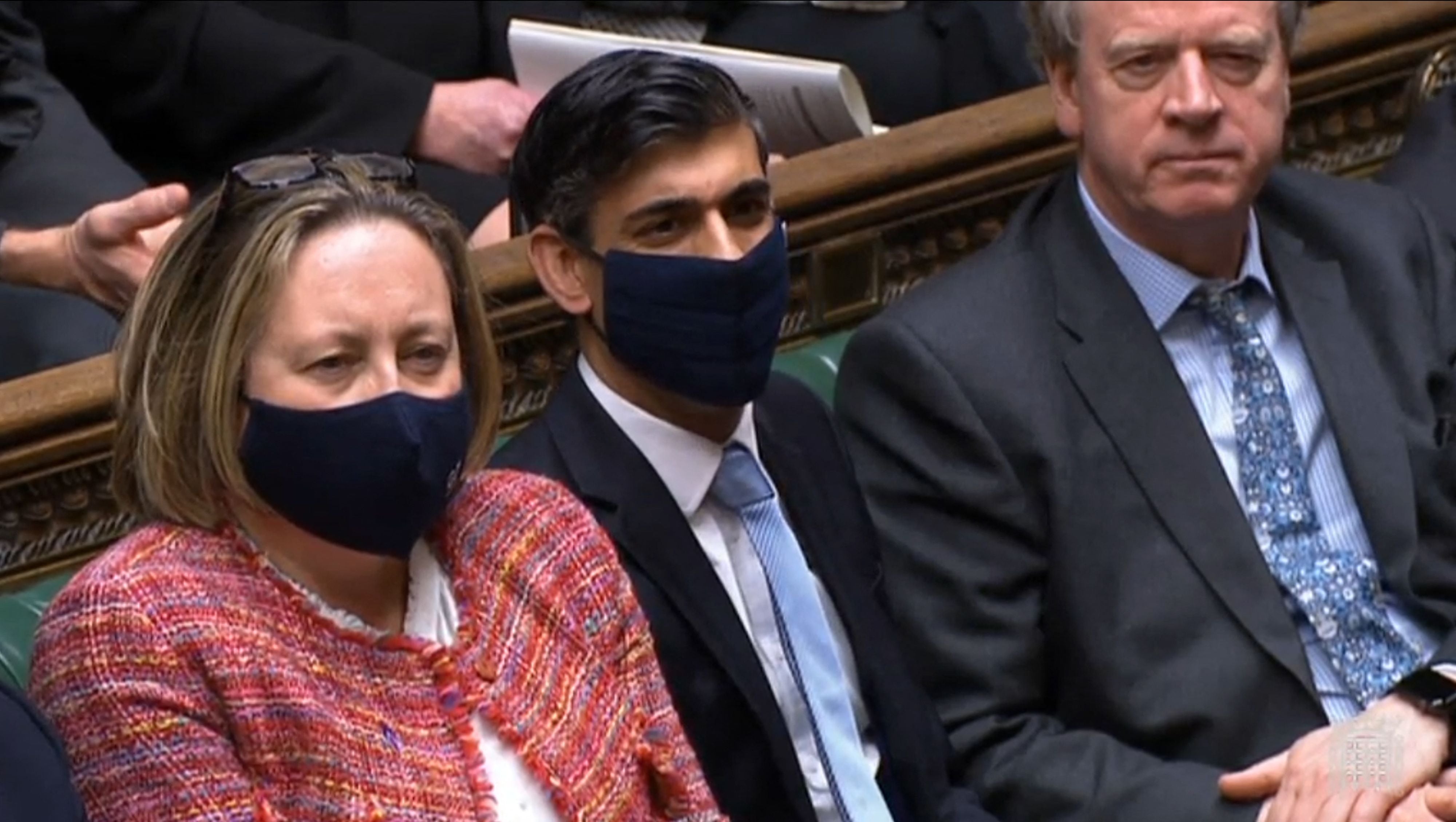Keir Starmer has shown that he is ‘Ready for Rishi’
Portraying Boris Johnson as the hapless prisoner of the real power in the land was an effective way of diminishing the prime minister, writes John Rentoul


The expected fall of Boris Johnson poses an exquisite problem for Keir Starmer. The Labour Party has a terror of what happened 30 years ago, when Neil Kinnock lost the 1992 election, which he had been expected to win. Labour had failed to adjust to the departure of Margaret Thatcher, continuing to attack “Thatcherism” without realising how attractive John Major’s moderate pragmatism was to its voters.
Starmer is determined not to make that mistake again. Hence today’s CEQs: Chancellor of the Exchequer’s Questions. Starmer treated Johnson as the mere spokesperson for the next prime minister, who was sitting, masked, several places along the government front bench.
Starmer completely ignored Johnson’s announcement of the end of coronavirus restrictions and directed all his six questions at the chancellor. First he asked about fraud. This was ostensibly an attack on Kwasi Kwarteng, the business secretary, who at the weekend got himself into a tangle by appearing to say that people didn’t think fraud was a crime. But it was really aimed at Sunak, whose write-off of £4bn of business support during the pandemic has touched a nerve.
Then, in one of the worst links in recent parliamentary history, Starmer said, “talking of scams…” and asked about Sunak’s plan to help people with their energy bills. It was a “dodgy loan” scheme, he said. He had a good line in withering scorn, briefly pausing in his onslaught on the chancellor to turn his fire on the outgoing prime minister: “When his donors give him cash to fund his lifestyle, and tell him he has to pay it all back later, are they giving him a loan or a discount?”
But then he was back to his main theme, accusing the prime minister of not understanding the finer points of the chancellor’s policy, because he is “not one for reading terms and conditions”.

Johnson appeared to confirm this, by describing the scheme as “£9bn of support”, when two-thirds of that is a loan that has to be paid back by energy bill payers over the next five years. This set Starmer up for his prepared line: “The loan shark chancellor and his unwitting sidekick have now cooked up a buy now, pay later scheme.”
Portraying Johnson as the hapless prisoner of the real power in the land was an effective way of diminishing him, although there may be a danger for Labour of building up Sunak, when the aim is to try to pin the blame for unpopular policies on him.
To keep up to speed with all the latest opinions and comment sign up to our free weekly Voices newsletter by clicking here
What was surprising was that Starmer didn’t add the April national insurance rise to the charge sheet, as that is very much Sunak’s policy. Starmer’s omission was so striking that Johnson commented on it after Ian Blackford of the Scottish National Party demanded that the tax rise be rescinded. The prime minister said it was “interesting” that the Labour leader didn’t mention it, and defended it as needed to pay for dealing with the NHS backlog. Perhaps Labour focus groups suggest that the tax rise may not be as unpopular as it seems – or that people accept the need to pay for getting waiting lists down.
Starmer was probably wise to focus his fire instead on the profits made by oil and gas producers. Johnson looked as if he would rather that Sunak was answering that question. The prime minister rambled about gas prices being a global problem and said Labour’s proposed windfall tax would deter investment at a time when we need more gas – before ending the sentence by saying that producing more gas was needed as part of the transition to cleaner fuels. Sunak remained inscrutable behind his mask.
The Independent reported recently that the chancellor is preparing a leadership campaign in case the prime minister falls, and that a “grassroots” supporter has set up a Twitter account called “Ready for Rishi”. One person who is ready for Rishi is Keir Starmer.
Join our commenting forum
Join thought-provoking conversations, follow other Independent readers and see their replies
Comments